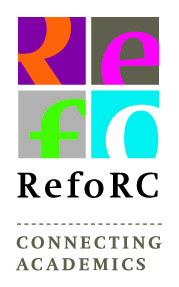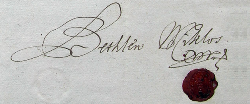The Institute for Literary Studies of the Hungarian Academy of Sciences used to have an immensely successful periodical titled Criticism (Kritika, 1963–1971) that was envied by Pál Pándi, one of the dominant figures of Hungarian cultural life in the 60–70s. The old Criticism therefore received tough (political) criticism and it ceased to exist at the end of 1971. From the following year on, a totally renewed, ideologically flawless Criticism reached the readers that was edited by Pál Pándi. However, the cultural leadership of the time did not want to risk, thus it decided that the Institute should get a new periodical.
This is how Literatura was born in the shadow of the usurped journal but with much fewer rights: it could only deal with literature and literary science and it could not have a review column. So it was only tolerated as kind of an internal forum of the profession and it was not even worth indicating its year and number. Politicians may have expected the editors to loose their enthusiasm because of the unfavourable conditions and thus the journal to have a short life. But luckily, this was not the case. Literatura have survived both the political transition and Pál Pándi.
Literatura was launched in 1974 with István Sőtér as editor-in-chief and Miklós Béládi as managing editor, and it considered the analysis of the questions of literary modernism and 20th-century Hungarian literature its main tasks together with literary theoretical orientation. The fact that it wished to represent the spirit of the abolished old Criticism had a great part in the development of its profile. It gladly gave place to debates on new literary phenomena and methods of interpretation. Literatura has always supported the new reform of secondary education and the writing and acceptance of new textbooks of literature.
In 1985, György Bodnár became the editor-in-chief and Béla Pomogáts the managing editor. The character of the paper was slightly modified: the supervision of the various tendencies of 20th-century Hungarian literary history was given a greater emphasis. The journal regularly published thematic compilations that included the contents of a significant conference. The volume nr. 1–2. titled Literature and politics, 1956 (Irodalom és politika, 1956), which collected the partly unpublished literary political documents preparing the revolution of 1956 and written during it, is the most successful volume of all times.
In 1990, Béla Pomogáts took over the position of the editor-in-chief while Ernő Kulcsár Szabó became the managing director. The profile of Literatura was significantly modified: it wished to be a mainly literary theoretical journal, which was the first step on a road without any precedent or tradition in Hungary before. The periodical gained an important role in the presentation of recent schools, especially in the review and critical analysis of the results of hermeneutical and reception aesthetical trends. As most of the readers of Literatura are university students, the periodical gladly published the writings of early-stage researchers, especially the studies and debates of young talents coming from the workshop led by Ernő Kulcsár Szabó.
In 2000, András Veres took over as managing editor, while he has been editor-in-chief since 2006 and Gábor Bezeczky has been the managing editor. Péter Hajdu, György Kálmán C. and Dávid Szolláth are involved in the edition of Literatura. Although the mainly literary theoretical profile has been kept, it has been somewhat modified as it gives place to studies representing literary sociology, cultural history and other related areas of science. The column called “Workshop” is reserved for the most excellent young professionals (what is more, occasionally even the winning piece of OTDK, the National Scientific Students’ Associations Conference, is published here). However, this column is suitable tointroduce various Hungarian workshops and schools, too (from Pécs through Szeged to Debrecen). The regular columns of criticism and reviews also help the orientation of the reader who is interested in literary theory.
Literatura was the first organ to publish chapters from the new Hungarian literary history manual edited by Mihály Szegedy-Maszák and issued in 2007 (in its nr. 2003/4.), and it also published the complete material of the debate session organized on the methodology of the manual to be compiled (nr. 2006/2.). Within the frameworks of the Hungarian Cultural Year in the Netherlands – “Hongarije aan Zee” – the thematical nr. of 2004/3-4. could be issued both in Hungarian and English. This enabled foreign readers to have an idea about contemporary Hungarian literature and about the scope of interest and research aspects of the authors and editors of the periodical that had been issued for thirty years that time.
In recent years, it has been more and more common that numbers with thematic material or with the contents of a conference have been issued. In parallel with the preparation of the third volume of the manual (which contains 20th-century material), Literatura aims at publishing texts that have already been discussed. In 2013, the periodical founded the Literatura Award to acknowledge the excellent participants of the National Scientific Students’ Associations Conference. (The first two awarded writings were published in the volume nr. 2013/3.)



